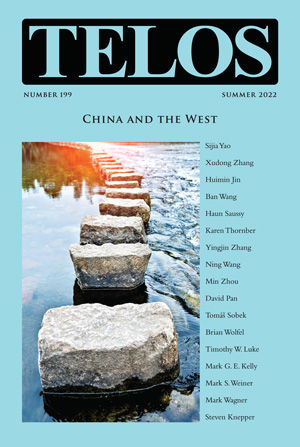 China has been intensively engaging with the West for over a century in its attempts to develop economic, political, and military power. At first limiting itself to appropriating Western technology, Chinese intellectuals eventually began to assimilate Western culture, literature, and ideas comprehensively, though of course doing so in a way that integrated them into their own cultural and political traditions. Its brand of communism, for instance, combines Western Marxism with forms of governance shaped by the long dynastic era of Chinese history. The Chinese assimilation of Western traditions establishes a basic openness to the West while also providing strategies for dealing with the West in times of conflict. On the one hand, China’s economic and political rise has been built upon a history of admiration for the West and the consequent ability to emulate Western practices. On the other hand, this intimate knowledge of the West has allowed China to take advantage of Western prejudices in order to undermine its structures, exploiting for instance the norms of free trade in a way that has undermined those very norms.
China has been intensively engaging with the West for over a century in its attempts to develop economic, political, and military power. At first limiting itself to appropriating Western technology, Chinese intellectuals eventually began to assimilate Western culture, literature, and ideas comprehensively, though of course doing so in a way that integrated them into their own cultural and political traditions. Its brand of communism, for instance, combines Western Marxism with forms of governance shaped by the long dynastic era of Chinese history. The Chinese assimilation of Western traditions establishes a basic openness to the West while also providing strategies for dealing with the West in times of conflict. On the one hand, China’s economic and political rise has been built upon a history of admiration for the West and the consequent ability to emulate Western practices. On the other hand, this intimate knowledge of the West has allowed China to take advantage of Western prejudices in order to undermine its structures, exploiting for instance the norms of free trade in a way that has undermined those very norms.
By contrast, China remains a black box to most Westerners. Not only have they continued to neglect the study of its language, literature, and history, but they are hampered in learning about contemporary Chinese culture and attitudes by Chinese controls on information, creating a separate internet in China that remains beyond the reach of Google and Facebook. Whether the future will bring increasing rivalry or cooperation with China, it will be crucial for the West to develop its own knowledge of Chinese history, traditions, and contemporary culture. Such knowledge would benefit China as well, as its official histories leave many Chinese ignorant about basic facts concerning their own history.
Even with more knowledge of China, it is impossible step outside of one’s own perspective to achieve a balanced assessment. Yet as Sijia Yao argues in her recent essay from Telos 199, “Third Term Comparison,” such balance should not even be the goal, since an approach to a different culture will always involve biases. A particular interest will always shape our analyses, and this interest is not something that we can avoid. The danger is an unconscious bias. Since biases ultimately reflect values, consciously deciding on the goals of our analysis will allow us to shape and adjust our research in a way that accords with our values. Accordingly, Yao offers a methodology for comparing China and the West through the use of a third term that identifies a defining purpose and value for the research. In our podcast conversation about her essay, we discuss the details and possibilities of this approach.








